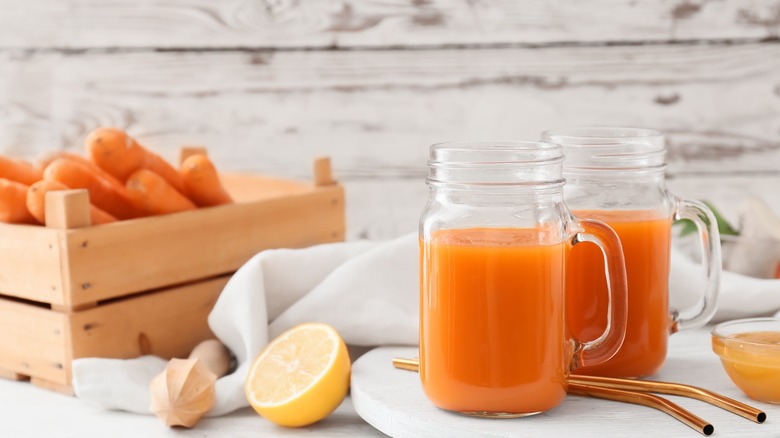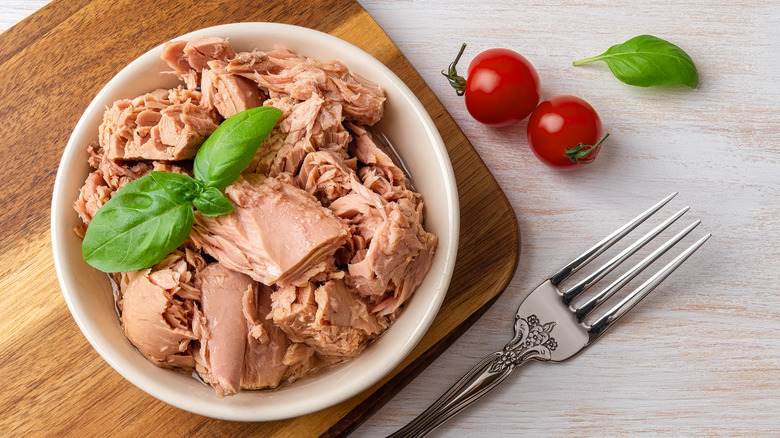How Carrot Juice Killed An English Scientist In 1974
Carrots are often touted as superfoods. These small, sweet vegetables are easy to cook and eat, and contain lots of great nutrients, including Vitamin C, iron, and potassium (via WebMD). In addition to providing necessary nutrients to the body, some evidence suggests that carrots can lower cholesterol and help you lose weight (via Healthline). Carrots have around 30 calories each, according to Good Housekeeping, which is about a third of the calories in a banana (via Healthline) and around 6% of the total calories in a burger (via Livestrong).
The reputation of carrots is so well established that they've also earned the label of an eye-friendly food. Carrots contain a lot of beta carotene, a component which is necessary for our bodies to produce the Vitamin A our eyes need to function (via Scientific American). But though carrots have many benefits, that doesn't mean you should eat them in mass quantities, as one British scientist, Basil Brown, found out in 1974.
How a scientist overdosed on Vitamin A
Basil Brown was 48 years old when he died in 1974, according to The New York Times. During an autopsy, it was revealed that Brown was far from healthy when he died. Despite being a reported "health-food enthusiast," Brown had vibrant yellow skin and cirrhosis of the liver. Also known simply as cirrhosis, this condition means scarring of the liver, and means the damaged organ cannot function well or at all (via Mayo Clinic).
Cirrhosis of the liver can result from many different conditions, including alcoholism, hepatitis, and cystic fibrosis. However, investigators soon discovered that Brown's cirrhosis came from a less common cause: overdosing on Vitamin A. In the weeks leading up to his death, Brown had been consuming large amounts of supplements, according to The New York Times, and chugging carrot juice. The supplements and the carrot juice combined gave him a lethal dose of Vitamin A. The proof? Just look at that skin: Brown's mustardy complexion might have been carotenemia, a condition that can result from the intake of too much beta carotene in one's food (via DermNet NZ).
Other foods you can eat too much of
If you're suddenly worried about the sauteed carrots you had last night for dinner, don't be too alarmed. As WebMD points out, it takes a lot of carrots to reach a dangerous level. So long as you don't eat excess amounts of the vegetable, you should be fine. But there are plenty of other seemingly-healthy foods that can be dangerous, too. Among these foods are proteins like tuna, which can contain high levels of mercury (via Healthline). That means you shouldn't eat tuna more than once every three or four days, according to Medical News Today, and children should eat tuna even less frequently.
Additionally, some spices can cause problems if consumed in excess. Both nutmeg and cinnamon should be eaten in moderation, according to Healthline. Cinnamon and nutmeg each contain potentially toxic compounds, so be careful if you eat more than half a teaspoon of cinnamon per day, and don't eat more than two teaspoons of nutmeg (via Healthline).


